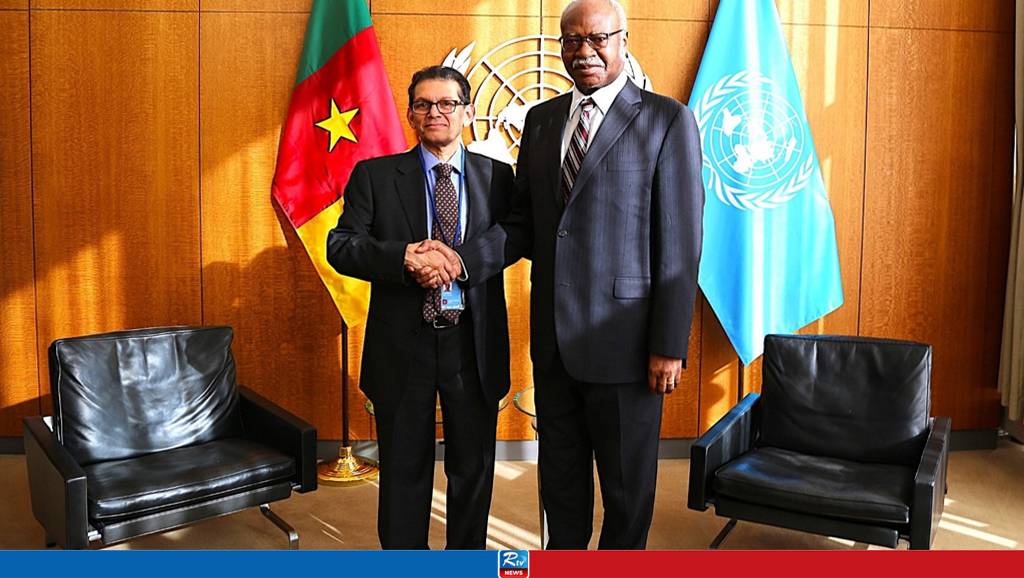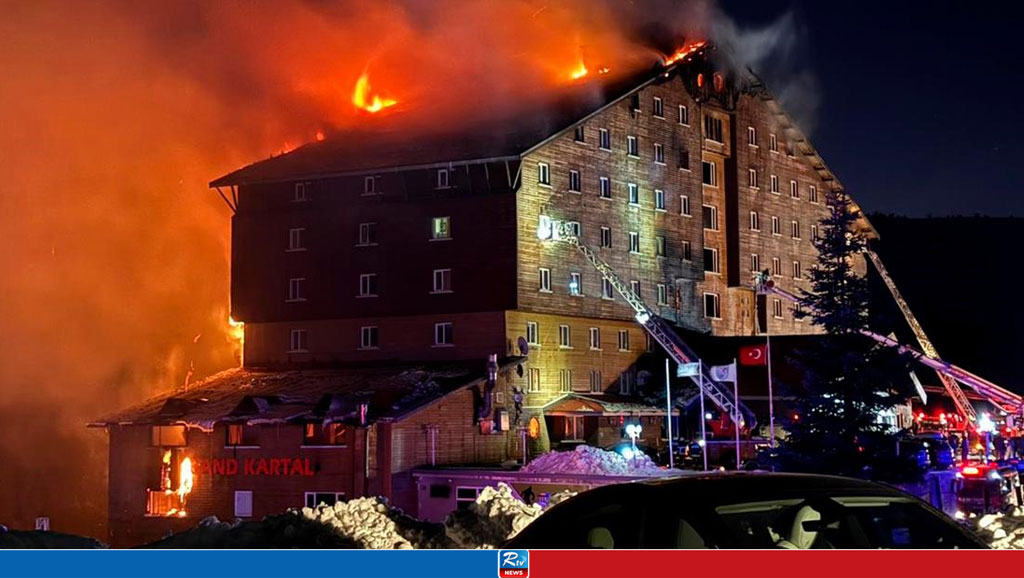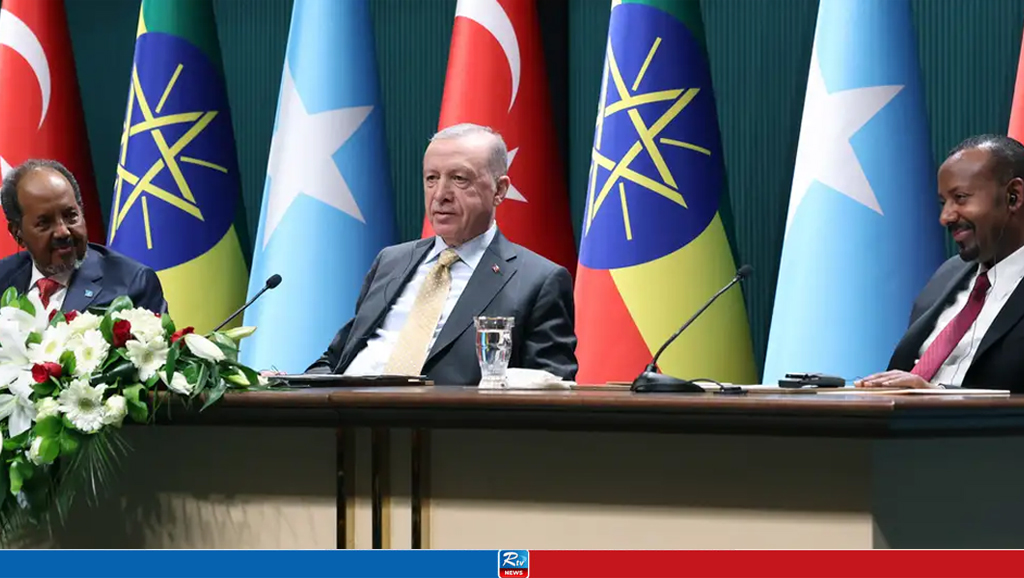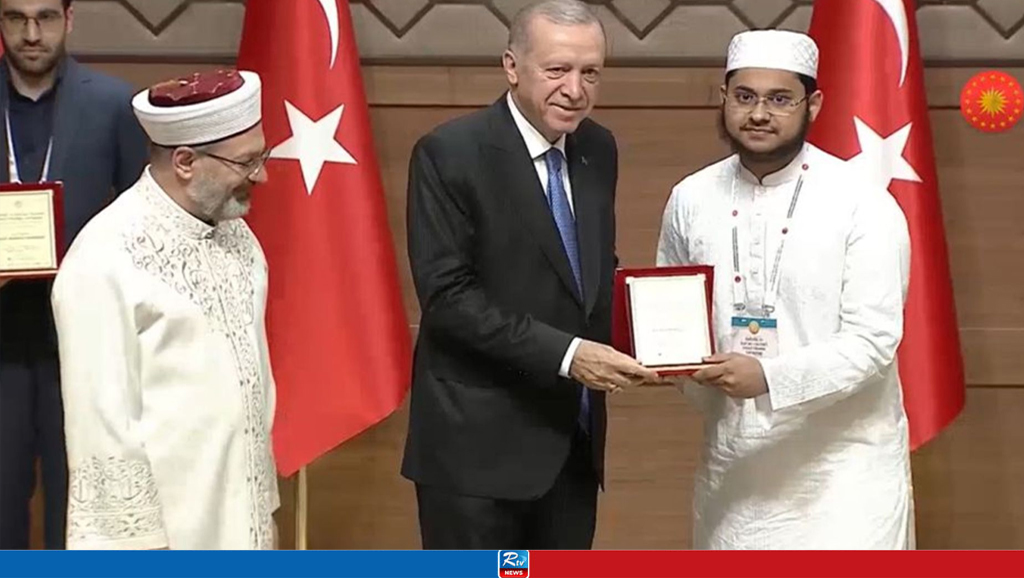Turkey's Erdogan sworn in for 3rd term as president

Recep Tayyip Erdogan was inaugurated for another five-year term, calling for reconciliation with his political opponents after a bitter election battle. In a cabinet reshuffle, Mehmet Simsek was named finance minister.
Turkish President Recep Tayyip Erdogan appealed for unity as he was sworn in for a third consecutive term on Saturday after winning a runoff election.
"We will embrace all 85 million people regardless of their political views ... Let's put aside the resentment of the election period. Let's look for ways to reconcile," Erdogan said during the inauguration speech at the presidential palace in Ankara.
"Together, we must look ahead, focus on the future, and try to say new things. We should try to build the future by learning from the mistakes of the past," he added.
Erdogan's opponents stay seated
Supporters in parliament gave Erdogan a minute-long standing ovation after his swearing in, while some opposition lawmakers refused to stand up.
The ceremony was attended by high-level officials, including NATO chief Jens Stoltenberg, Venezuelan President Nicolas Maduro, Hungarian Prime Minister Viktor Orban and Armenian Prime Minister Nikol Pashinyan.
Later Saturday, 21 heads of state and 13 prime ministers joined Erdogan at a lavish dinner, alongside high-level officials from other countries such as the United States and China.
What next for Turkey?
Turkey's longest-serving leader, Erdogan won 52.2% support in a May 28 runoff election.
His victory defied most opinion polls and came despite a cost-of-living crisis that was seen to have hurt his prospects.
Erdogan's new five-year mandate will allow him to continue pursuing an increasingly authoritarian program domestically while charting an independent path as a regional military power amid global crises such as Russia's invasion of Ukraine and the conflict in Syria.
His new government will also oversee efforts to rebuild after a devastating series of earthquakes in February killed 50,000 people and leveled entire cities in the southeast of the country — a disaster he was widely criticized over.
Key among his priorities will be addressing Turkey's economic troubles that analysts blame on the Turkish president's unorthodox economic policies.
Later Saturday, Erdogan announced his new Cabinet, confirming that former Deputy Prime Minister Mehmet Simsek would become treasury and finance minister.
Simsek is a former Merrill Lynch economist known for his more conventional approach to public finances.
His appointment is seen as a sign that Turkey will return to internationally-established economic policies.
Erdogan appointed Cevdet Yilmaz to the position of vice president, Yasar Guler was named defense minister, Hakan Fidan was appointed as foreign minister and Ali Yerlikaya was named interior minister.
During his victory speech last Sunday, Erdogan admitted that inflation, which hit a 24-year high of 85% last year before easing to 44% last month, was Turkey's most urgent issue.
Stoltenberg eyes NATO talks
On Sunday, Erdogan will hold bilateral talks with Stoltenberg as Turkey continues to block Sweden's membership of the military alliance in the wake of Russia's war in Ukraine.
Ankara was among the last NATO members to ratify Finland's membership in March.
Erdogan has held out on allowing Sweden to join over Stockholm's reluctance to extradite exiled members of Kurdish groups that Turkey claims to be "terrorists" with the outlawed Kurdistan Workers' Party (PKK).
The NATO secretary general previously said his visit to Turkey aimed to "ensure the fastest possible accession of Sweden" to the military alliance, ideally during the next leaders' summit in July.
"My message is that Sweden has delivered, and the time has come to ratify Sweden," Stoltenberg told reporters on Thursday.
Stoltenberg will be joined for the talks by former Swedish Prime Minister Carl Bildt.
Comments
UNGA President, Dr. Khalilur Rahman Discuss 2025 Rohingya Conference

BSF Reports: / Muslims, Not Hindus, Flocked to India from Bangladesh After August

Pakistani Girls from Dawoodi Bohra community Continue to Grapple with Secretive Practice of FGM: Report

Pakistan Hikes Petrol, Diesel Prices Amid Public Outcry over Inflation

13 Soldiers Killed in Armed Attacks, BLA and BLF Claim Responsibility

Gold Prices Surge to Two-Week High, Reasons Revealed

Thousands Evacuate over Volcanic Eruption Fears in Ethiopia


 Live Tv
Live Tv




